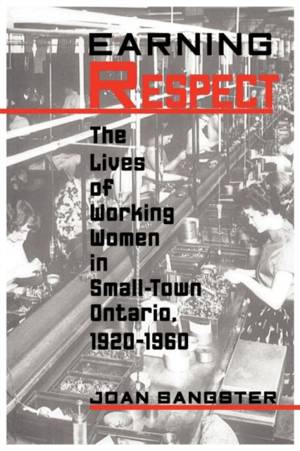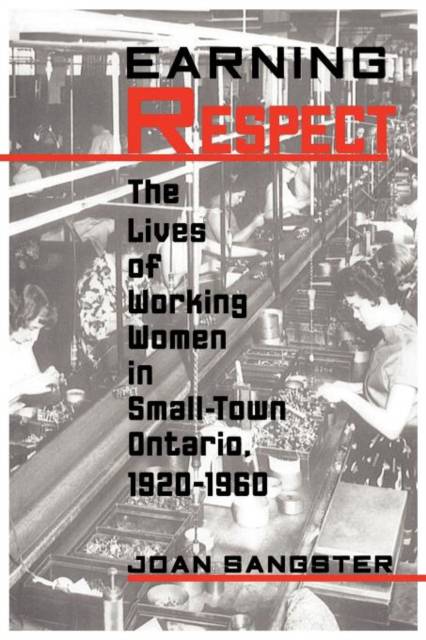
- Retrait gratuit dans votre magasin Club
- 7.000.000 titres dans notre catalogue
- Payer en toute sécurité
- Toujours un magasin près de chez vous
- Retrait gratuit dans votre magasin Club
- 7.000.0000 titres dans notre catalogue
- Payer en toute sécurité
- Toujours un magasin près de chez vous
Description
Between 1920 and 1960 wage-earning women in factories and offices experienced dramatic shifts in their employment conditions, the result of both the Depression and the expansion of work opportunities during the Second World War. Earning Respect examines the lives of white and blue-collar women workers in Peterborough during this period and notes the emerging changes in their work lives, as working daughters gradually became working mothers.
Joan Sangster focuses in particular on four large workplaces, examining the gendered division of labour, women's work culture, and the forces that encouraged women's accommodation and resistance on the job. She also connects women's wage work to their social and familial lives and to the larger community context, exploring wage-earning women's 'identities, ' their attempts to cope with economic and family crises, the gendered definitions of working-class respectability, and the nature of paternalism in a small Ontario manufacturing city.
Sangster draws upon oral histories as well as archival research as she traces the construction of class and gender relations in 'small town' industrialized Ontario in the mid-twentieth century. She uses this local study to explore key themes and theoretical debate in contemporary women's and working-class history.
Spécifications
Parties prenantes
- Auteur(s) :
- Editeur:
Contenu
- Nombre de pages :
- 334
- Langue:
- Anglais
- Collection :
- Tome:
- n° 2
Caractéristiques
- EAN:
- 9780802069535
- Date de parution :
- 24-05-95
- Format:
- Livre broché
- Format numérique:
- Trade paperback (VS)
- Dimensions :
- 152 mm x 229 mm
- Poids :
- 476 g

Les avis
Nous publions uniquement les avis qui respectent les conditions requises. Consultez nos conditions pour les avis.






